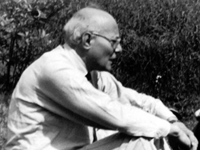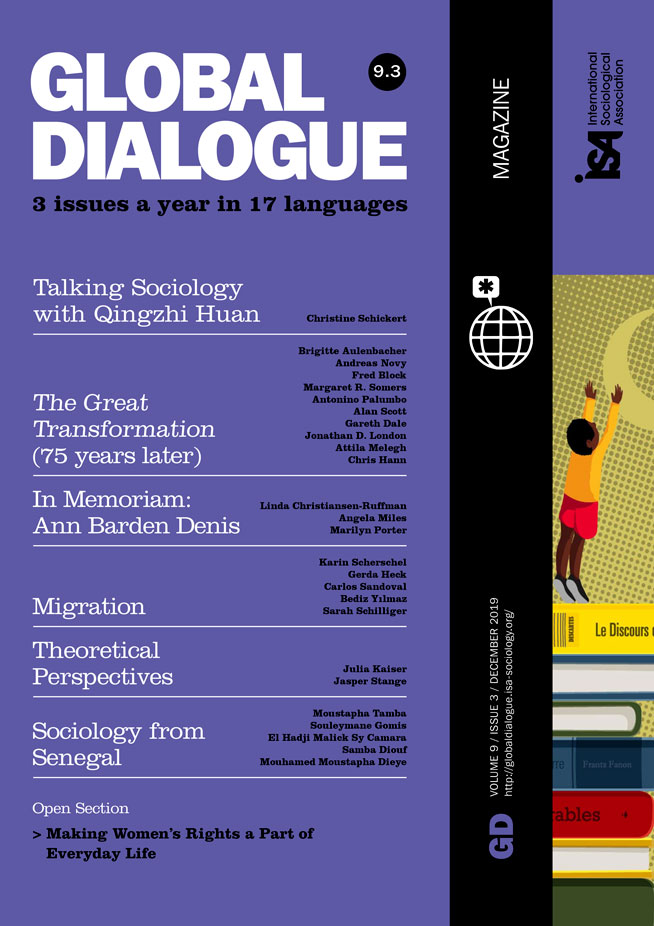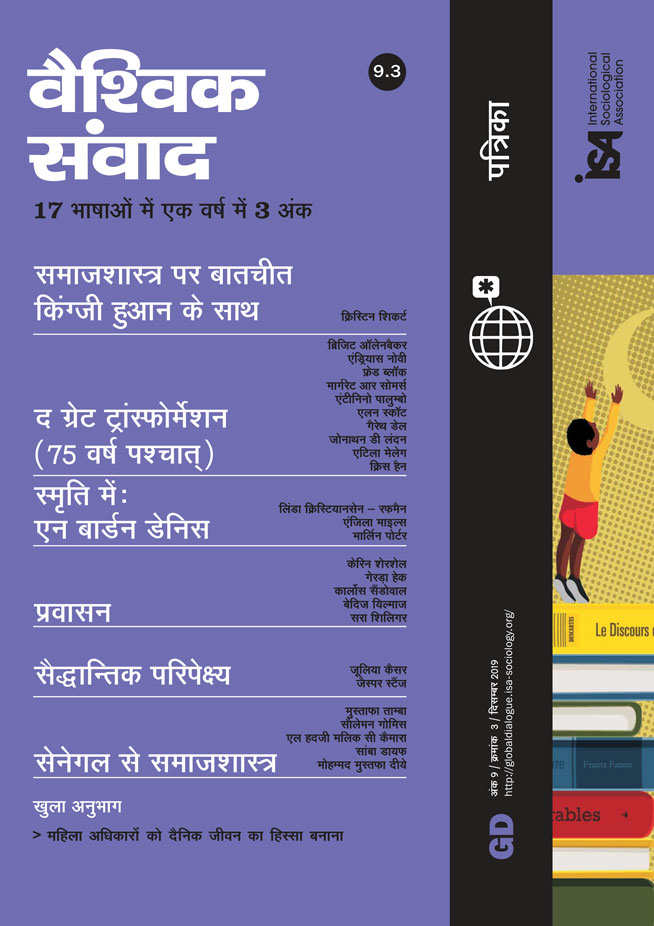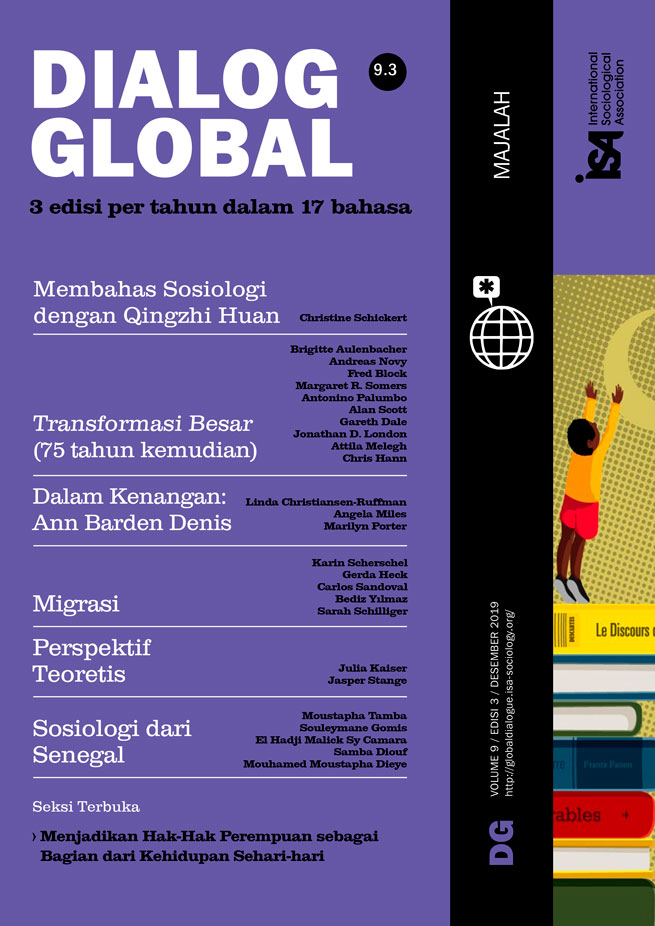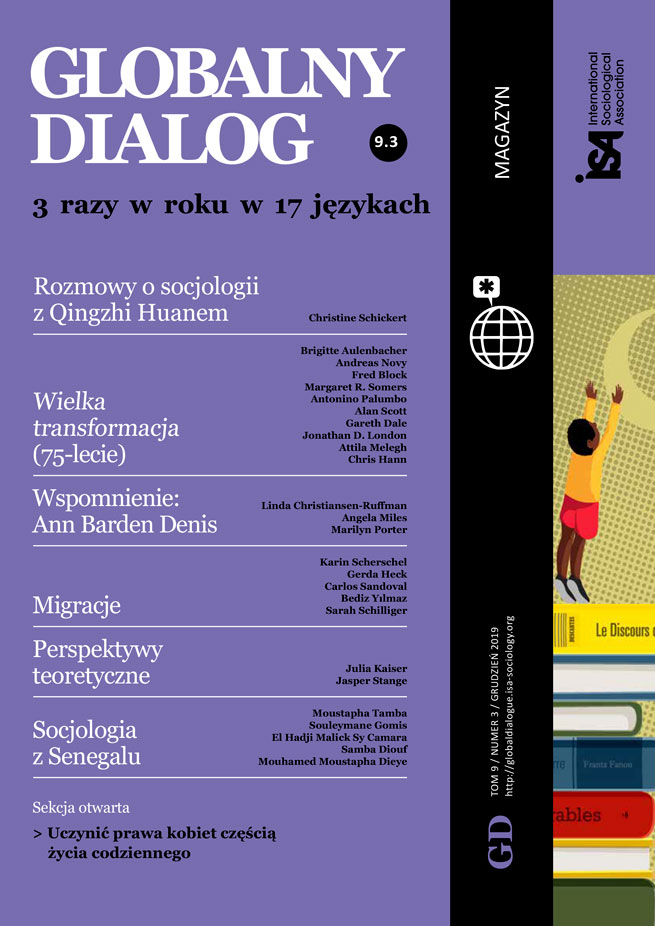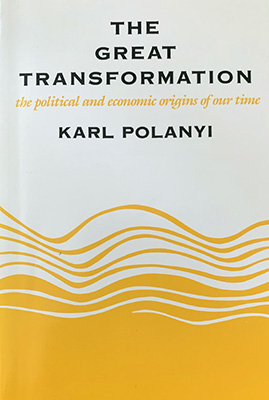The Great Transformation (TGT), the magnum opus of Karl Polanyi, published in 1944, reconstructs the economic, social, and cultural history of capitalism in the face of the developments he had witnessed between the 1920s and the 1940s: market fundamentalism after World War I, the subsequent crisis and stock market crash in 1929, the Great Depression, fascist and socialist attempts to re-order the economy and society, the New Deal and, finally, World War II.
The Great Transformation is a keen-eyed investigation of what happened and may happen in the history of capitalism if the economy and society are organized along the “liberal creed” of the “self-regulating market” (Karl Polanyi, The Great Transformation: The Political and Economic Origins of Our Time, Boston: Beacon Press, 2001 edition, p. 141) and the society becomes more and more a “market society,” driven by the mechanisms of demand, supply, price, and the profit-oriented dynamics of the market. In such a system, where “human society had become an accessory of the economic system” (TGT, 79), also those elements which never had been provided and produced for sale – land (nature), labor, and money – become “fictitious commodities:” “But labor and land are no other than the human beings themselves of which every society consists and the natural surroundings in which it exists. To include them in the market mechanism means to subordinate the substance of society itself to the laws of the market” (TGT, 74) and leads to its “demolition” (TGT, 75). Karl Polanyi analyzes the history of nineteenth-century capitalism as the result of a “double movement,” the “movement” of marketization and the “countermovements” – labor movements, legislation, protectionism, etc. – by which human society seeks security and protection.
In his presidential address at the ISA World Congress of Sociology in Yokohama in 2014 Michael Burawoy emphasized the significance of TGT by elaborating how the new “wave” of “marketization” initiated in the 1970s, the post-communist phase of globalization after 1989, the financial crisis of 2007-8, and the subsequent social protests can be understood as a Polanyian double movement. And indeed, in particular since 1990 there has been an increasing interest in Karl Polanyi’s work. Scholars from around the globe are referring to his analysis of the “double movement” and trying to make use of his motif of “fictitious commodities.” Furthermore, they are also rediscovering his visions of “freedom in a complex society” and his ideas of a just and free society which might be possible “when the utopian experiment of a self-regulating market will be no more than a memory” in the history of industrial civilization (TGT, 258).
This symposium celebrates 75 years of TGT by presenting articles referring to the history of Karl Polanyi’s oeuvre as well as to perspectives and approaches making use of it. Fred Block and Margaret R. Somers read Karl Polanyi’s work in his time with reference to the mentors of neoliberalism, Hayek and Mises, as well as to fascism, and show its relevance for understanding today’s authoritarian tendencies. Antonino Palumbo and Alan Scott overcome the simplistic state-market dichotomy and explain why and how states support markets. Gareth Dale gives a critical overview of the history of national accounting as stabilizing an economic order based on profit and, stemming from these reflections, problematizes an allegedly Polanyian reading of the “Beyond GDP” debate. Jonathan D. London investigates the great transformation in East Asia and dwells on the contradiction of a simultaneous increase in marketization and in welfare policies. Attila Melegh and Chris Hann combine a deep understanding of Karl Polanyi’s work in his time with contemporary reflections on right-wing populism in regard to migration and the developments in Europe. Andreas Novy concludes by stressing the enduring legacy of Polanyi, his inspiration for social movements, his critique of contemporary “global” capitalism, and his search for alternatives.
Brigitte Aulenbacher, Johannes Kepler University Linz, Austria and member of ISA Research Committees on Economy and Society (RC02), Poverty, Social Welfare and Social Policy (RC19), Sociology of Work (RC30), and Women, Gender and Society (RC32) <brigitte.aulenbacher@jku.at>
Andreas Novy, Vienna University of Economics and Business (WU), Austria <> and Andreas Novy <andreas.novy@wu.ac.at>




